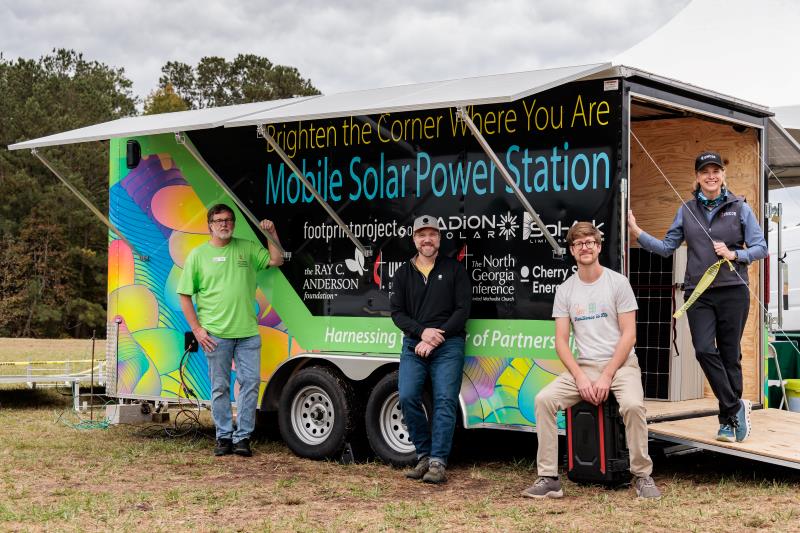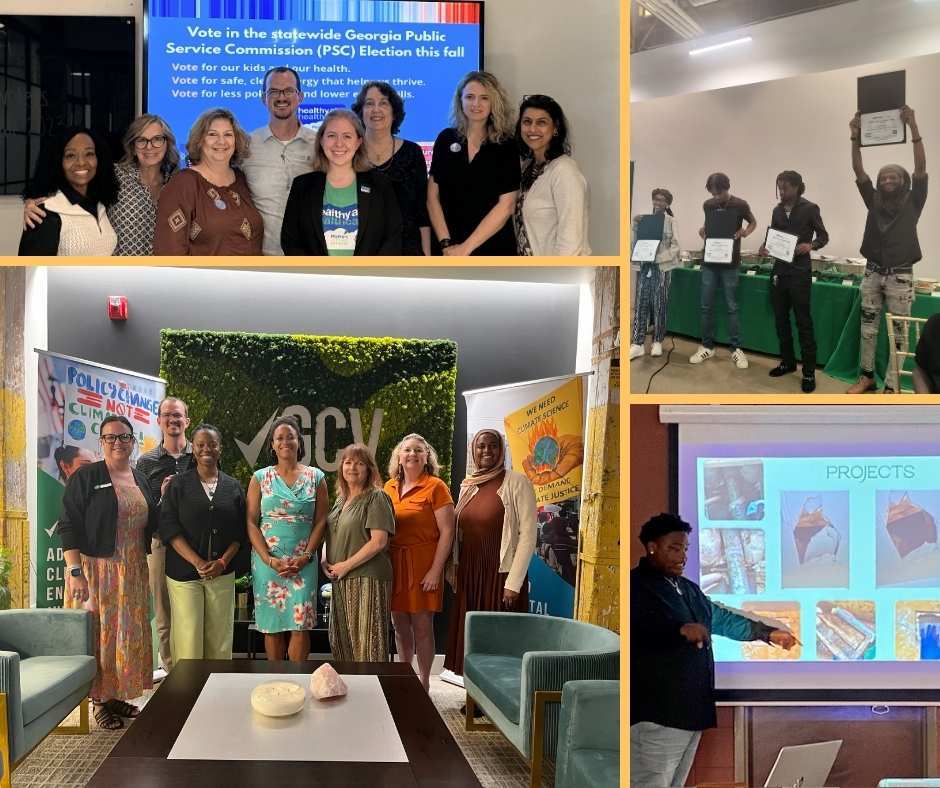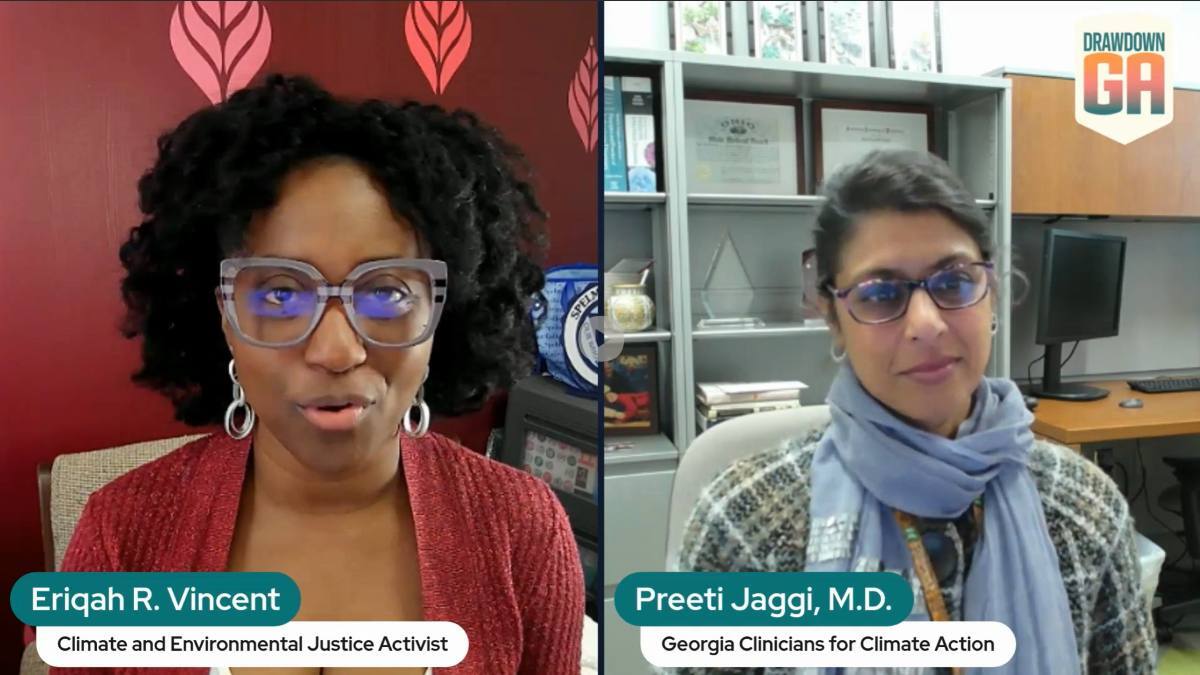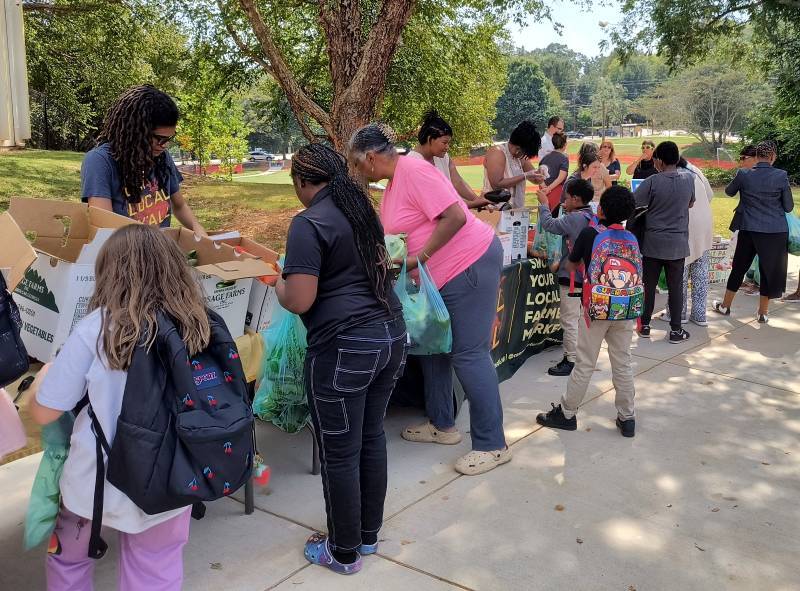The Southeast is experiencing more frequent and extreme heat waves, hurricanes, and other disasters that are exacerbated by climate change. In the event of power outages, emergency response teams must find safe and reliable sources of backup power, quickly.
Paradoxically, this often means relying on fossil fuel-powered generators, which can be loud, unsafe, require frequent refueling, and contribute to climate change. It’s a problem that the Footprint Project, a nonprofit dedicated to delivering cleaner energy to climate disasters, is helping to solve with innovative solar-powered microgrid trailers.
Unveiling a New Solar Microgrid Trailer in Georgia
Disaster response in Georgia is becoming more sustainable with a network of solar microgrid trailers that serve as mobile solar power stations to provide clean and portable power. These solar trailers are easily towed to where they are needed most to power cell phones, Wi-Fi, refrigeration, lighting, medical devices, and other critical services.
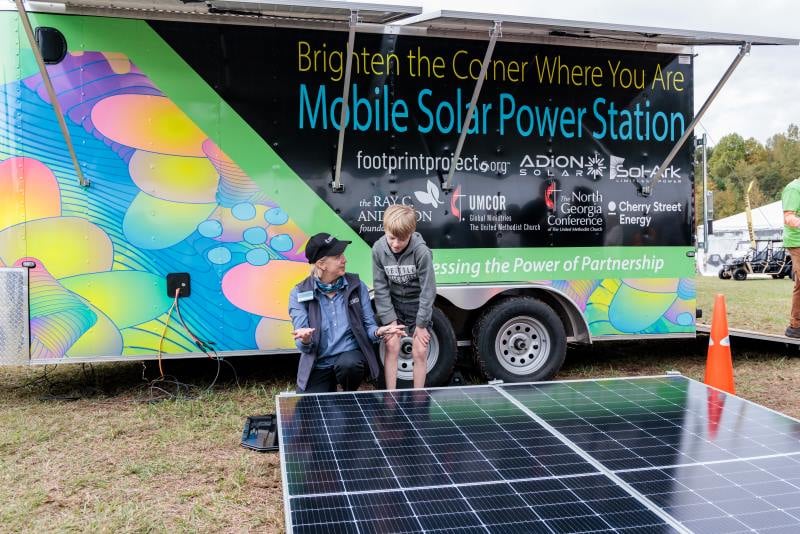
Each solar trailer is rapidly deployable and can be towed to where it is needed most. In between disasters, it can also help offset the use of traditional gas or diesel generators at local live events and festivals. In addition to providing clean energy for communities in crisis, the mobile solar microgrid trailer is an outreach and education tool that can be used to promote and celebrate resilience.
Local Partnerships That Made the Solar Microgrid Trailer a Reality
The first of these new solar trailers, which are powerful enough to charge an electric vehicle, was made possible by a partnership between several Atlanta-based organizations.
Cherry Street Energy donated the solar panels for the microgrid and coordinated the trailer build with The Footprint Project, who also organized the deployment of the trailer.
The North Georgia Conference of The United Methodist Church and United Methodist Committee on Relief (UMCOR) will use the trailer for disaster response situations.
The Ray C. Anderson Foundation provided financial support.
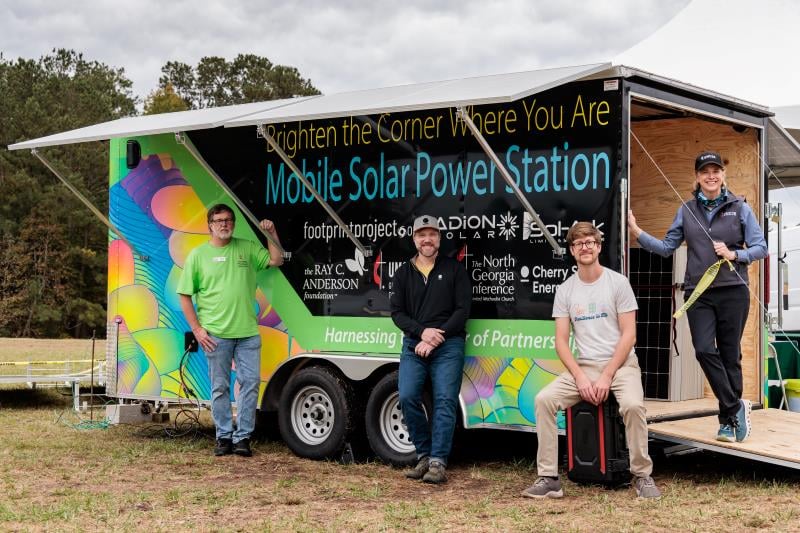
In addition to supporting the development of these solar trailers, all of the partners share a vision of promoting a more sustainable society and a just, equitable transition to net-zero emissions.
Origins of the Partnership Making Disaster Response More Sustainable
The coalition first came together through a network of response partners that had been working together in the Gulf Coast since Hurricane Ian and Hurricane Ida. The Footprint Project had deployed a mobile microgrid to a church in southern Louisiana that had been devastated by Hurricane Ida. The microgrid ultimately powered that community center for six months.
UMCOR learned of the microgrid while the organization was also working in the area, and reached out about the possibility of integrating solar microgrids into their own disaster relief work. UMCOR and the Footprint Project were soon collaborating to build and deploy mobile microgrids for disaster response efforts with the United Methodist Church.
A Renewable Power Source for RayDay and Georgia Disaster Response
At the same time, the Ray C. Anderson Foundation had reached out to Cherry Street Energy to explore options for developing a source of clean energy to replace the conventional diesel generators that had been in use at the annual RayDay eco-festival.
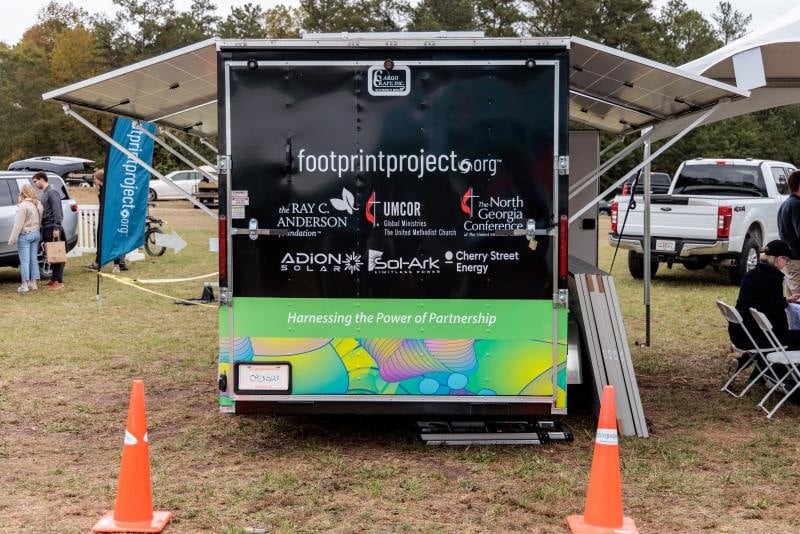
Cherry Street Energy facilitated an introduction with the Footprint Project and the Foundation, and the partnership behind the new solar microgrid trailer was born.
As a result, the trailer made its public debut at RayDay in October 2023 and is now available to power disaster response in Georgia whenever and wherever it is needed.
The Value of Clean Energy in Disaster Response
In times of disaster, gaining access to a source of power is one of the most essential yet challenging parts of response and recovery. Thanks to this partnership, responders in Georgia will be able to bring their own environmentally sustainable solar microgrid trailer power source with them, providing vital emergency power without the environmental damage caused by traditional fossil fuels.
Stay Up to Date on Inspiring Renewable Energy Stories in Georgia
If you appreciate learning about exciting, positive developments around renewable energy in our state, you’ll want to subscribe to the Georgia Climate Digest, which delivers the latest local climate news right to your inbox twice a month.


